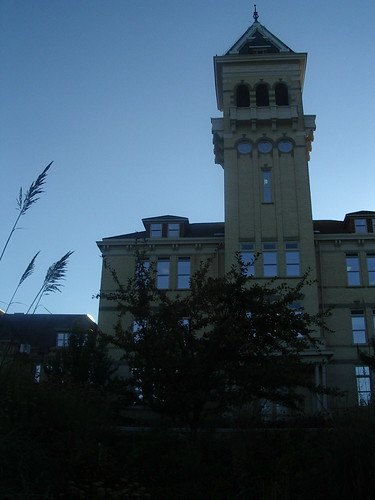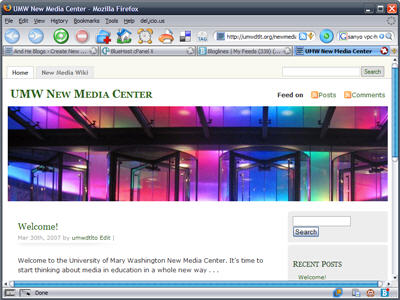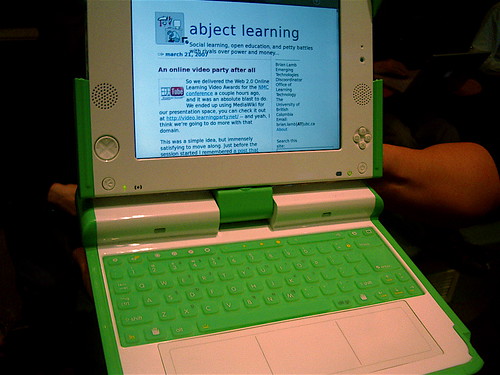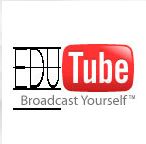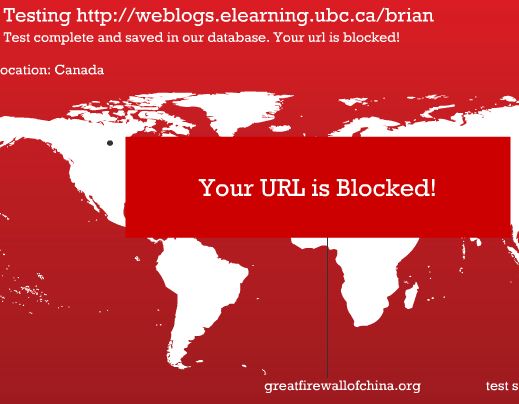So David Wiley has dropped the needle on this year’s Open Education Conference, September 26-28:
For the first several years our field focused on content production and content licensing. Today, there are thousands of full university courses and tens of thousands of learning modules available as open educational resources under open licenses like those offered by Creative Commons. However, our work isn’t finished; we’re simply nearing a checkpoint.
If our open education efforts aren’t supporting learning, we’re failing as a field. Period. And as we are beginning to understand how to produce and license content, we have to turn some of our attention to how this content is used by learners and teachers. How do they change, adapt, and localize it for their specific needs or the needs of their specific students? Do open educational resources support learning in ways different from non-open resources? In what concrete ways do open educational resources support learning?
Nuff said. Well, maybe not quite nuff. I’ll add a bit.
Longtime readers of this blog know this is one of my favorite conferences — see my posts from 2004, 2005, and 2006. Why do I dig it so much?
* It is one of very few education conferences explicitly dedicated to principles of openness of content, to open source tools, and extending effective educational use by fostering a culture of remix. As D’Arcy argues in a fabulous post written this morning, is there anything more important we in our field could be doing? Or more to the point, anything more fun?
* The event has a much higher representation of open education projects than most conferences, including ones just getting off the ground, so you are certain to learn about some new applications or efforts you’ve never heard of before.
* The organisers at Utah State — David, Brandon, Shelley, and many many others — are among the grooviest, friendliest hosts imaginable. This is not an unconference, but it has the informal, warm vibe I associate with events like Northern Voice. And it’s a very cool thing to check in with the small army of USU’s eager graduate students doing phenomenal stuff with instructional technology. Every year, they surprise and delight me.
* Logan is in a beautiful part of the world, and every year they organise meals and hikes in the surrounding canyons. Weather has been perfect each time I’ve visited. The city itself is low key, but I quite like it, especially the old downtown. It’s true there isn’t much for nightlife, but it does have one of my favorite pubs, the White Owl, with a fantastic rooftop patio with mountain views. Great spot for a beverage.
* Last year they confused my life-long vendetta against conference chicken by doing it up Mexican.
* The line-up of speakers is always first rate. Don’t let the inexplicable choice of one of this year’s keynotes (ahem) put you off.
From my email, and my Twitter feed, it seems like a few of my buds are wavering on whether or not to attend. If you are on the fence, or simply want to know more, get in touch with me and I’ll pile on more and more (and more) rationale.
Oh, and while I’m on the subject, a couple more really fine comments were added to my last call for feedback on open educational resources — thanks to Bryan Alexander and Gardner Campbell for their typical eloquence and insight. I’m sorry not to have responded appropriately yet — I’ve gotten swallowed up in other stuff. There’s certainly no way I can fail to post on Gardner’s talk that he links to if I can ever fight through the patchy RealAudio link (where’s the MP3?) to finish it — simply mind-bending.

